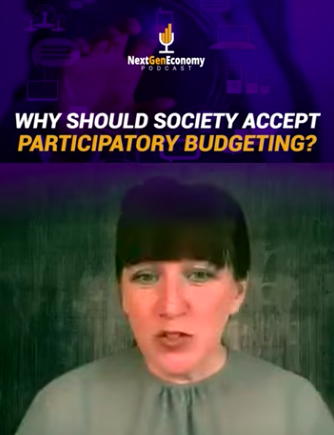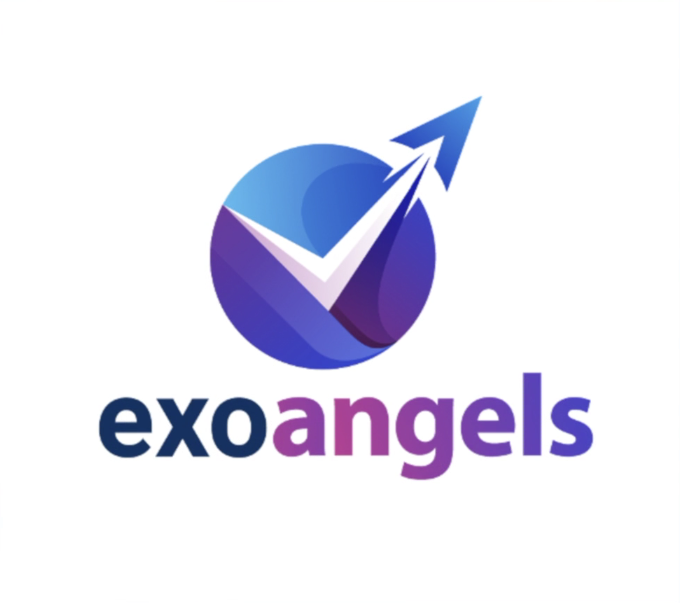Participatory budgeting is first a mindset shift – being open to seeing value & opportunities; balancing a commitment to ‘transformative’ methodologies and while not losing sight of what makes your organization successful; becoming ‘unfixed’ in traditional approaches.

You can find more great information like this at https://exoangels.com
What if budgets were based on outcomes to be reached, as they were for the moon landing and in wars? What if the first question is not ‘Can we afford it?’ but ‘What do we really want to do? And how do we create the resources required to realize the mission?’ The idea may seem strange and new, but it’s not.
To realize missions – massively transformative ones or smaller missions at a local level – we must be innovative. We must use collaborative, mission-oriented thinking while also bringing a stakeholder view into play. We must shift from ‘pyramid’ systems with ‘imposed’ budgets and decisions to ‘flatter’ systems with ‘community and crowd sourced’ + ‘engaged’ budgets and decisions. We can discover untapped value if we fundamentally restructure systems to make them inclusive, sustainable; and, change our mindsets and tools towards inclusivity – ensuring that stakeholders and the decision makers impacting them coalesce to share a common goal. [Read: 11 Attributes of Exponential Organizations]
One such inclusive mindset shift and tool is ‘participatory budgeting’. Participatory budgeting is first a mindset shift – being open to seeing value & opportunities; balancing a commitment to ‘transformative’ methodologies and while not losing sight of what makes your organization successful; becoming ‘unfixed’ in traditional approaches.
Second, participatory budgeting is a system that can be integrated into any organization. You can do it yourself with technology-enabled software; and, in the OpenExO ecosystem there are coaches, consultants, and advisors-on-demand ready to help empower your leadership journey to engage stakeholders to plan, ideate, refine, vote, and implement ideas & related spending that directly impacts communities.
If you are imagining, managing or building a community to be more #futurproof, we invite you to enjoy this article and podcast highlighting:
* Participatory Budgeting is Powerfully Engaging
* 5 W’s: What is participatory budgeting? Who is using it – from cities to enterprises to public schools…and more? When, where, and how you can start using participatory budgeting in your organization?
* People Closest To The Lived Experience(S) – Not Hippos – Often Have The Best Ideas On How To Improve It
* Participatory Budgeting in Schools Is Creating The Next Generation Of Impact Entrepreneurs
* It Is Powerful When A Previously Unheard Person’s Idea Becomes A Reality That Creates 10x Community Impact
* Enroll Greater Impact by Using Participatory Budgeting for Globally Distributed Teams
Participatory Budgeting Works Using These 5 Steps
Listen from [09:05] and [10:20]
- Planning – set a budget allocation and scope of the project
- Ideation – invite select participants to share their ideas & proposals. [Note: in schools, this can be students, parents, teachers. In other organizations, this could be clients, volunteers, neighborhood residents, downtown property owners – whomever you WANT to engage. Forewarning: Harnessing the ideas of the community and crowd is energizing, innovative, and often delivers MORE than what you would expect from traditional decision-making processes.]
- Refinement – ask questions, adjust ideas based on early feedback & feasibility
- Voting (ballot creation + voting + ratification) – let people shortlist priority project(s) by ‘putting their allocation of digital tokens/money towards one or more projects of choice
- Implementation – watch the project unfold through democratization and legitimate enrollment of community and crowd.
People Closest To The Lived Experience(S) – Not Hippos – Often Have The Best Ideas On How To Improve It
Listen from [10:55]
We’re disrupting hippos.
At FirstRoot, Founder Luke Hoffman’s big hairy audacious goal is to get $1,000+ into one million schools globally. This will create more equitable outcomes for all students everywhere; and it will pave the way for the next generation to have the mindset, skills, and tools.
CREDITS
Featured Entrepreneur: Luke Hoffman is the Founder and CEO of First-Root and the former principal consultant of the Scale Agile decision agility software platform. Luke’s massively transformative purpose is ‘Creating the Next Generation of Impact Entrepreneurs’,
This Week’s Host: Angela Faye is the Founder of Futurville, whose massively transformative purpose is “Imagining & Building Places Worth Living For”,
Executive Producer: ExO Economy http://economy.openexo.com
Contributors – Craig Terblanche, Francisco Jurado Povedano, Article Editor – Lisa Pereira, Podcast Editor – Niki Faldemolaei
